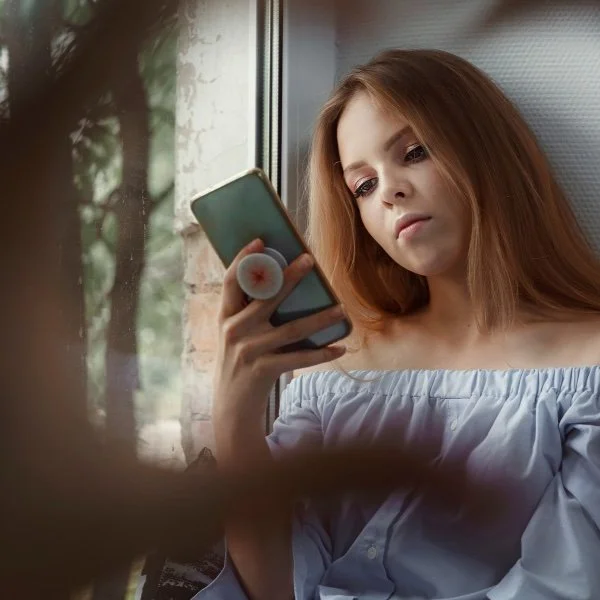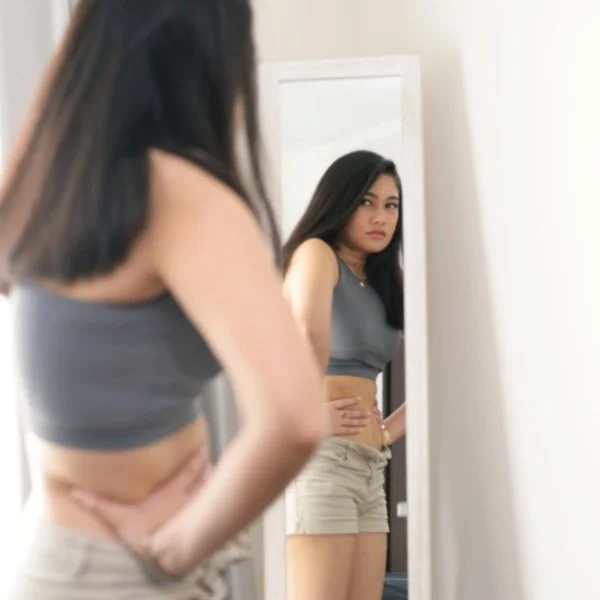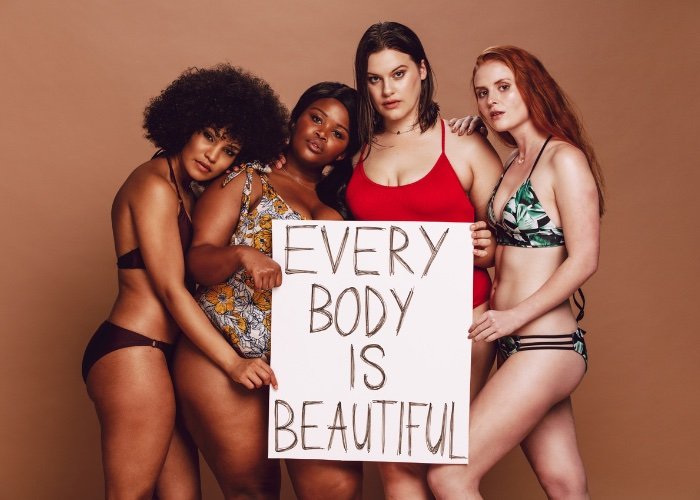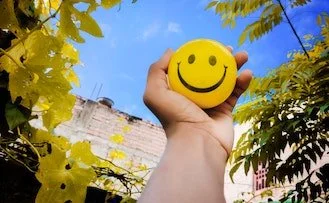How Does Social Media Influence My Body Image
Have you ever been scrolling through Instagram or Tik Tok or any other social media platform and thought “I wish I looked like that”? Everywhere we look there are images of “perfect” bodies. No matter how hard we try to convince ourselves that they don’t have an effect on us, being constantly surrounded by “perfection” that is almost unattainable in normal life can take its toll on us, both mentally and physically. After hours of looking at influencers or friends that have the ideal body, it is easy for us to go up to the mirror and see all of our insecurities. More often than not, this insecurity can lead to destructive behavior and a downward spiral.
I have been a witness to many friends and family making negative comments on their bodies. About how they needed to start a diet or needed to lose fat. But how did they come to this conclusion? What makes us think that we need to change how we look? Sadly, in this day and age, social media is at its height. With one swipe of your finger, you can find influencers showing off what seems to be the ideal body. While poor body image has shone through throughout the years, as social media has become more and more prevalent, so has this negative body mentality.
Social media and the body image ideal have always been a huge passion of mine. For the longest time, I tried to convince myself that I did not have a problem with how I looked and that I was confident in who I was. But this mindset only lasted so long before I was back in front of my mirror comparing every inch of myself to the girls that popped up on my Instagram feed. Before I even realized it, exercise and “healthy” eating consumed my thoughts. I ended up on the path of diets, cleanses, 10-minute ab workouts, and more. As much as I hated to admit it, I eventually realized that I was struggling, and I needed to change my mindset.
Unfortunately, the number of people (both teenagers and adults) that struggle with how their body looks is tremendous. In a study by Florida House Experience (healthcare institute), they surveyed 1,000 people and found that 87% of women and 65% of men compare their bodies to what they see on social media. Additionally, these people perceive their bodies in a negative manner and see themselves unfavorably. When individuals realize that they cannot achieve the ideal body seen on social media, dissatisfaction generates, and a negative attitude towards the body occurs. At a time when social media is used almost 24/7, it is no surprise that the rates of poor body image are at an all-time high.
Social media displays nothing but people’s personal highlights. It only shows ideal lives, ideal scenarios, and ideal bodies. We hardly ever see the bad side of life, or even the normal side, which makes our personal lives seem pale in comparison. The more we start to compare, the more our negative mindset grows. Today’s diet culture does not help and brings about the belief that in order to be accepted and liked, we must look a certain way.
So how can we find contentment within ourselves in a world full of social media?
1. Take a break
I would encourage you to take a break from social media. It does not have to be forever, but a brief pause from the constant posting on social media could be a nice escape. Spend some time to yourself and away from the comparisons on social media. A reprieve from the eyes of others can help build one’s confidence. The break is a time to work on yourself and avoid the craziness that goes on in the fake world. Social media is fake. It has been said time and time again, but I feel we sometimes forget or don’t believe it. But as a reminder: don’t believe everything you see on the internet. Take a rest and do something you enjoy that brings you peace.
2. Filter your following
Go through who you are following on social media and get rid of any accounts that have a toxic effect on your life. Take away the temptation and the images that keep you from loving yourself. There are even encouraging accounts that can cause distress for some people. Whatever is keeping you from seeing yourself in a positive light, I encourage you to delete it. While we do need challenges and motivation, do not confuse hard work and dedication with unhealthy habits.
3. Accept yourself
Get rid of the self-deprecating comments and learn to find the good. While no one likes a prideful, “better than you”, attitude, it is refreshing to find someone that does not complain about everything they find wrong in themselves. You are unique and there is only one you. Your body is strong and keeps you alive. Everyone has their insecurities but comparing them to other people only makes that mindset worse. Instead, take steps to begin eliminating whatever fear is holding you back from loving your body AND yourself. Accept the good. Accept the bad. Accept yourself for who you are instead of trying to make yourself into someone else.
You are not alone; I have spent multiple years comparing myself to everyone out in the world, but I never found satisfaction. There was nothing that I could do to achieve what I desired. No diet or food or workout will change us in the way we want. I encourage you to embrace challenges, dig deep, and find the motivation to live a healthy lifestyle - don’t let social media and the endless stream of curated, filtered pictures take control over your life. There will always be times of struggle, but it is the action you take after the struggle that counts. Even now, there are times when I struggle with how I look and that’s NORMAL. We will always have these hints of insecurity now and then, but don’t let them overwhelm you. No more comparisons, no more lies, you are greater than any words or pictures that may be posted.
References:
Friero Padín, Paula, et al. “Social Media and Eating Disorder Psychopathology: A Systematic Review.”
Cyberpsychology, vol. 15, no. 3, Sept 2021, pp. 1–21
online.king.edu/news/social-media-and-body-image/





